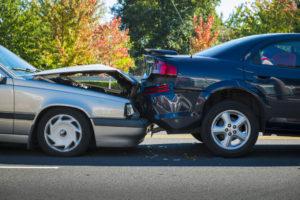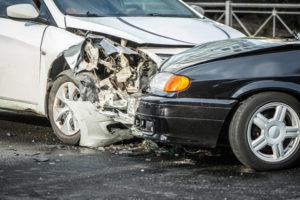
It’s no secret that car accidents can cause debilitating injuries that range from broken bones to paralysis. Although physical wounds are often easy to identify, many victims also endure psychological trauma that affects their careers, relationships, and enjoyment in life.
According to a report from the American Psychological Association (APA), car accidents are the leading cause of post-traumatic stress disorder (PTSD) in the United States. Unfortunately, many cases of PTSD go untreated, and patients who do not seek treatment are more likely to suffer the effects of PTSD for longer than six months.
Who Is at Risk for PTSD After an Injury Accident?
Although anyone can develop PTSD after a car wreck, there are risk factors that make certain people more prone to the condition. These include:
- Lacking a support system of family and friends;
- Suffering from other mental health issues, such as anxiety;
- Working in a job that exposes the person to traumatic events; and
- Having a family history of mental illness.
However, it is important to keep in mind that you could develop PTSD with none of these risk factors. A serious collision can be traumatizing. Some people falsely believe that PTSD only occurs in those who are active-duty military, witness a severe crime, or experience other extreme trauma, but even events less traumatic than a car crash can lead to enough emotional distress to trigger PTSD symptoms.
For a free legal consultation, call 800-537-8185
How a Car Accident Lawyer Help If You Were Hurt in a Crash
If you were injured by a negligent driver in Louisiana, contact Morris Bart, LLC. An accident lawyer in Lafayette will evaluate your case to determine if you have grounds for a claim. You may be entitled to compensation for medical bills, lost income, pain and suffering, and other damages. Call 800-537-8185 to schedule a free consultation.
We may be able to help you recover compensation for your mental anguish, psychological care and support, and intangible losses, in addition to your physical injuries and related expenses.
6 Signs You Might Be Suffering from PTSD After a Car Accident
Post-traumatic stress disorder is a serious condition that is often associated with military action. However, every time you climb into a car, you take the risk of experiencing a traumatic event.
Car accidents affect everyone differently, and the symptoms of PTSD are not the same for all crash victims. However, these six symptoms are particularly common among PTSD sufferers:
- Reliving the crash in nightmares and flashbacks;
- Having an irrational fear of getting in a car;
- Feeling severe anxiety that affects your concentration and sleep;
- Feeling intense guilt or blaming yourself for the incident;
- Not recalling details about the traumatic event; and
- Feeling depression, hopelessness, and paranoia.
You may experience only one or two of these symptoms or have many from this list. In general, you should consider seeing a mental health professional if you feel sad, anxious, scared, or disinterested for more than a few weeks following the accident or if you develop these feelings as your injuries heal. Many people report feeling “numb” even after recovering from their injuries—this could be depression.
Whether you have PTSD or not, it is not uncommon to have some emotional distress or mental anguish following a car accident. A therapist can assess if your feelings are a sign of a more extensive concern or not. They can also offer advice and possible solutions regardless of the diagnosis.
Click to contact our personal injury lawyers today
Treatment for PTSD After a Car Accident
If you were injured in a car accident and you notice the symptoms of PTSD, you should seek immediate medical attention. Talking with a therapist, psychologist, or another mental health professional will allow you to get a diagnosis and treatment. For example, you may benefit from a treatment plan that combines psychotherapy and medication.
Depending on the severity and nature of your PTSD, your doctor may recommend cognitive behavioral therapy (CBT). The goal of CBT is to identify and change irrational, negative thought patterns. CBT can be very effective for treating and managing the anxiety, guilt, and other issues associated with PTSD.
Do You Have the Symptoms of PTSD?
In addition to medication, therapy, and CBT, there are other treatments that your doctor could recommend depending on your symptoms and other factors. These include:
- Exposure therapy: Exposure therapy is also effective for PTSD sufferers. This involves confronting the cause of the PTSD in a safe, controlled setting.
- Medications: Your doctor may also prescribe anti-anxiety medications and antidepressants. These can help with depression and sleep problems. Among the most common are selective serotonin reuptake inhibitors (SSRIs). They are a type of antidepressant that can help improve your mood.
- Eye movement desensitization and reprocessing (EMDR): EMDR is a form of psychotherapy used to help individuals process the experiences that led to their trauma. It can teach them to manage their upsetting memories, thoughts, and emotions.
Many People do Not Get Help Because of the Cost
The expenses related to seeing a doctor and addressing mental health issues keeps many accident victims from getting the help they need. This should not be the case, because these expenses are recoverable just like the costs of an emergency department visit and the treatment offered there.
You can include mental health counseling in your insurance claim after a crash as long as your medical records tie the therapy to your crash. You can also seek damages for your physical and emotional pain and suffering and other intangible damages.
Connect With Morris Bart, LLC for Your Free Case Consultation
If you suffered PTSD after a car crash, you may be entitled to compensation. A car accident lawyer from Morris Bart, LLC will evaluate your case and explain your legal options. We may be able to help you recover money damages to pay for your treatment and care.
Call (800) 537-8185 today to schedule a free consultation.
Questions?Call 800-537-8185
to find a Morris Bart office near you.





